Tourist arrivals for the first quarter of 2017 have increased by 24%, statistics that were presented at the Malta Hotels and Restaurants Association Survey by Deloitte show.
The survey involved 53 participants around the island, something which Raphael Aloisio from Deloitte said was a disappointing amount.
The meeting also marked the first official meeting between the new Tourism Minister Konrad Mizzi and the MHRA.
The growth was attributed by an increase in private accommodation arrivals, which increased by 37.1%, bringing the market share up to 27% of total arrivals.
Collective accommodation establishments also generated a “healthy, albeit slower growth” of 19.9% in the first quarter.
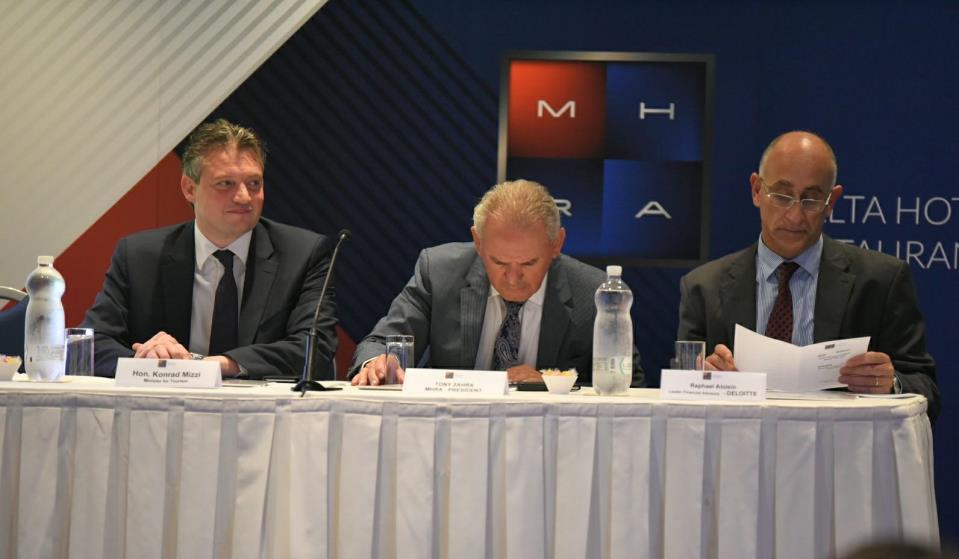
Expenditure also increased by 13% in three years from 2015 to 2017.
The survey reported higher occupancy rates in hotels, with an increase registered in the four star sector, which now stands at 12.3% of the market.
Five star hotels also reported an increase of 12.5% in average daily rates.
Three star hotels also reported an 11% improvement,.
The total revenue per available room was up in all hotel sectors, with five and four star hotels registering increases of 14.1% and 9.7% respectively.
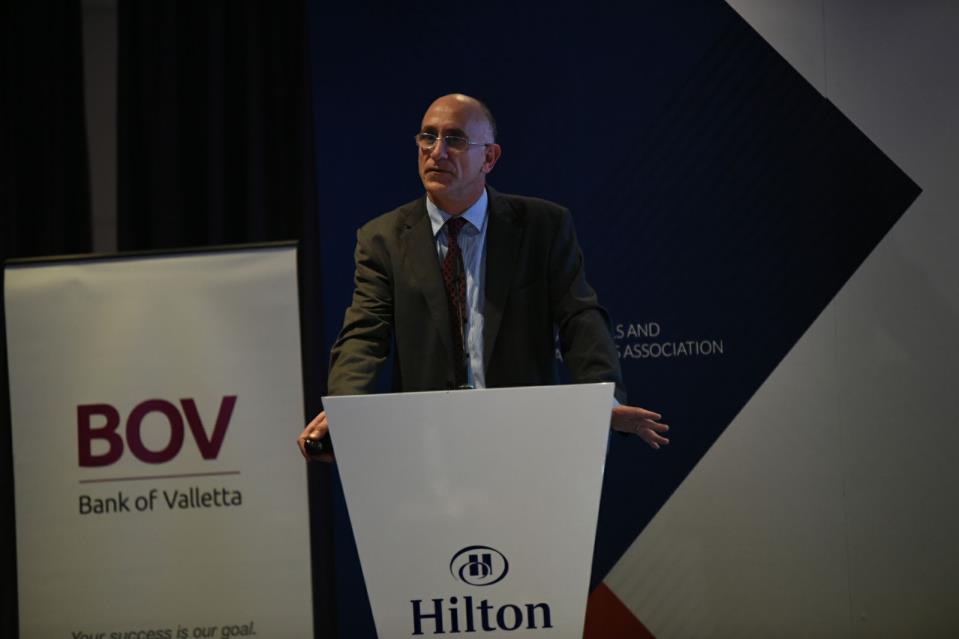
The average gross operating profit has also increased from €815 to €1,684 for five-star hotels; and €317 to €510 for four-star hotels.
65% of employees in the industries are Maltese, while 35% are foreigners.
There was also indications that Gozo and Valletta are growing industries with regards to restaurants.
“It was important,” Aloisio said, “ that the market grows with the economy.”
He said that it could cause serious concern in the future.
Aloisio said that in spite of Valletta's performance, the area only recorded a 31% positive sentiment, which he attributes to substantial increase of outlets in the area.
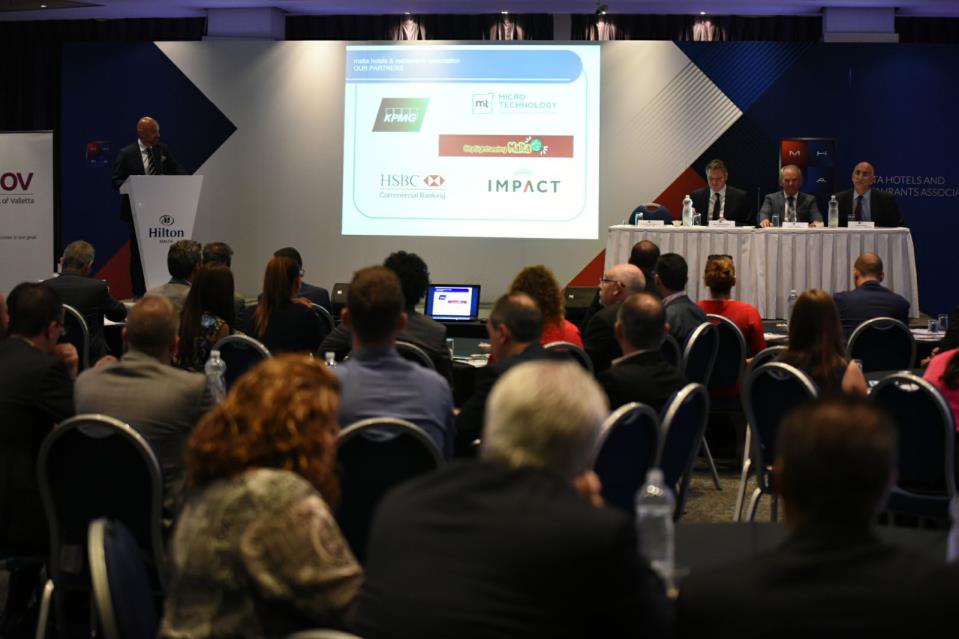
Trends
According to Aloisio, the trend lines over the last five years also show that the “hard work” of the industry, with tourism and arrivals showing sustained growth with 2 million arrivals registered in 2016, compared with the 1.4 million arrivals in 2013.
Tourist expenditure has also increased from 1.3 billion euros in 2012 to 1.7 billion euros in 2016.
There has also been a diversification of the industry, meaning that the country no longer relies on one particular type of tourism.
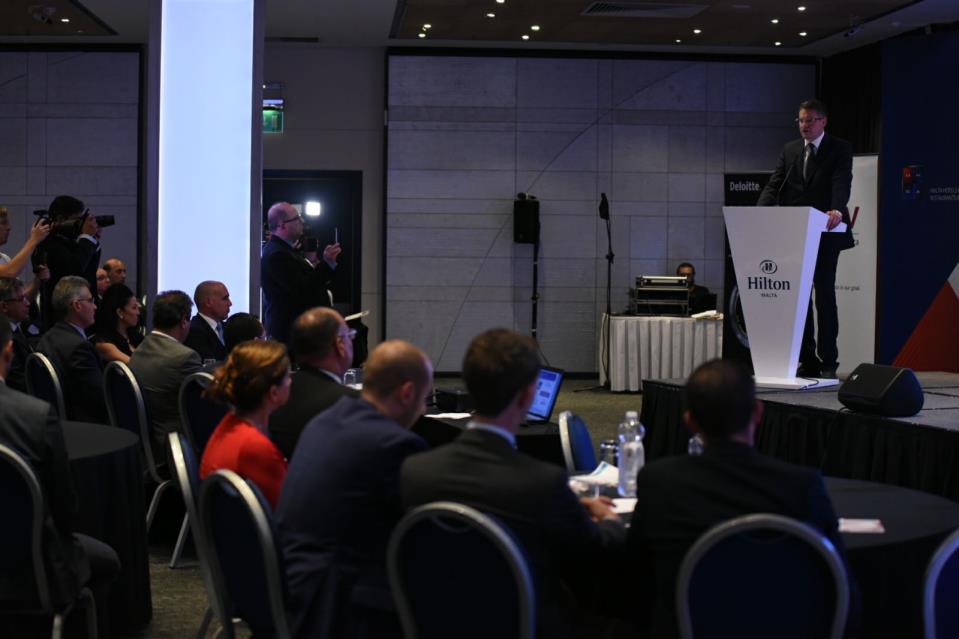
For the period, there have been increases in the arrivals of British, Italians and Germans while there was a drop in numbers from Spain, Libya and Russia.
With regards to profitability, it has increased by 91% for five star hotels, 111% for four star hotels, and 84% for three star hotels.
In six years, Aloisio said, the hotels went from recording a gross operating loss, a substantial profit.
Konrad Mizzi and Tony Zahra
Mizzi began by thanking his predecessor Edward Zammit Lewis for the hard work he had put into the industry.
He assumed he union that he wanted to work hand in hand with the MHRA.
“You want to be the best in class, and we will make sure the offering truly is the best in class.”
“We want to strive for excellence across the sector.”
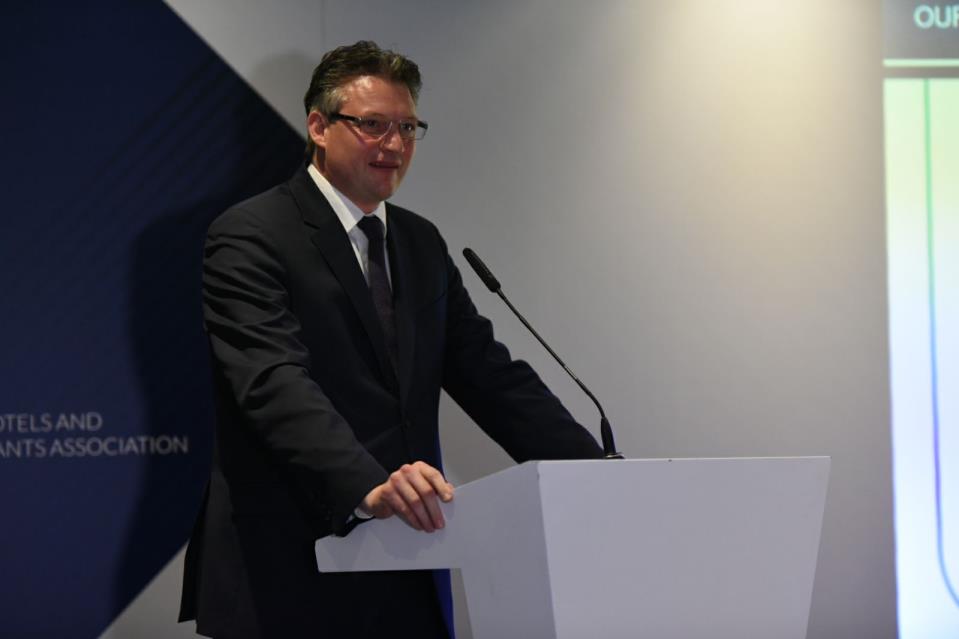
He said that government wanted to grow tourism in a sustainable manner, particularly in the winter months.
“There are low hanging fruit in particular Germany, Portuga,l Spain, France, the Nordic countries Israel and Ireland.
“The MTA will keep on supporting individual segments such as history and culture, England language, and niche areas.”
On product development, Mizzi said that theI”Feedback is that the product should improve which relates to infrastructure, cleanliness and attractions.”
Mizzi said that the ministry will focus with key stakeholders to examine what the improvement are.
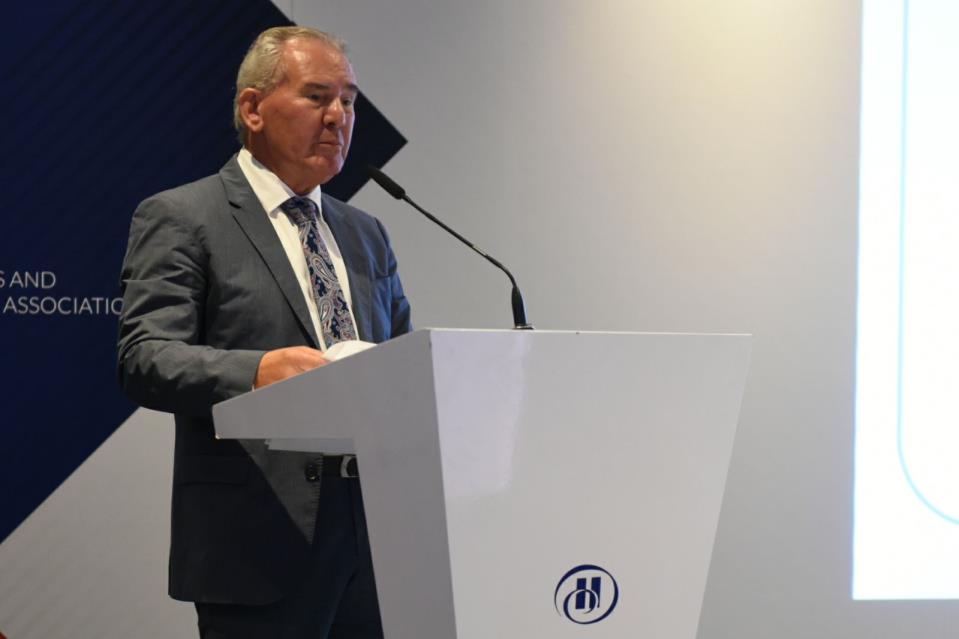
“We will be looking at industry leaders to deliver these initiatives.”
He said that recruitment will remain a challenge given that the demand for work is greater than the supply.
MHRA President Zahra said that the national airline was what made the difference between “us and other countries”
“In the 70s, it was the big jump in the tourism sector.”
He said that while there has been an increase of Foreign airlines in the country, these companies only “looked after their own pockets,” and will leave should the financial situation in Malta take a downturn.
“We keep looking for strategic partners around the globe. Why are we looking around the world when we should be looking in Malta?”
“We keep thinking some foreign company will come because they love us. When only Maltese people truly love the country.”
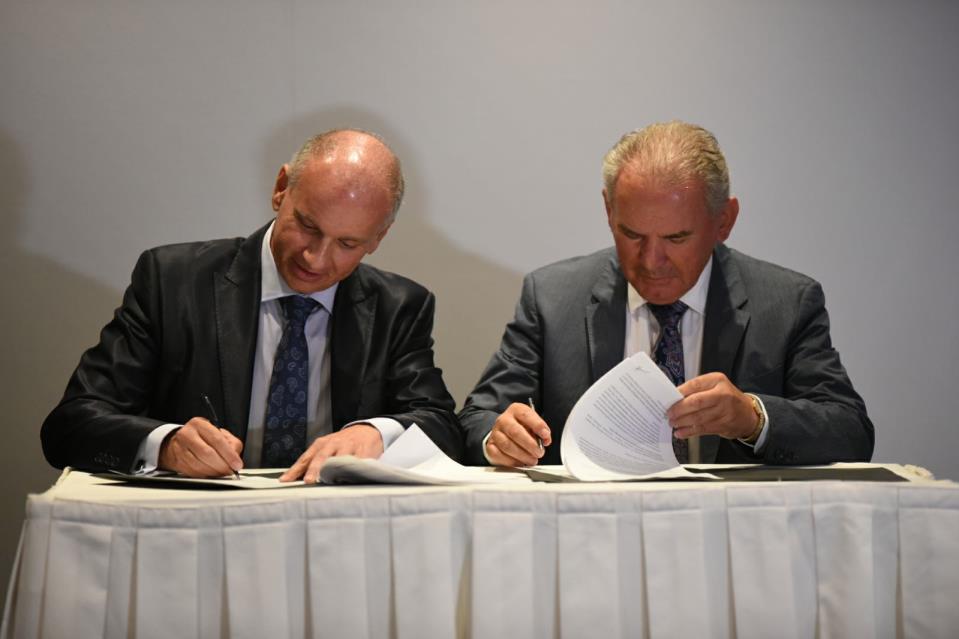
Mediterranean Institute for Tourism and Cultural Studies
A memorandum of understanding was also signed at the meeting regarding the launch of the Mediterranean Institute for Tourism and Cultural Studies, which is a network of international schools which will operate in Malta and various other satellites around the Mediterranean.
Malta is the main structure, while schools have already been set up in Italy, Algeria, and Palestine